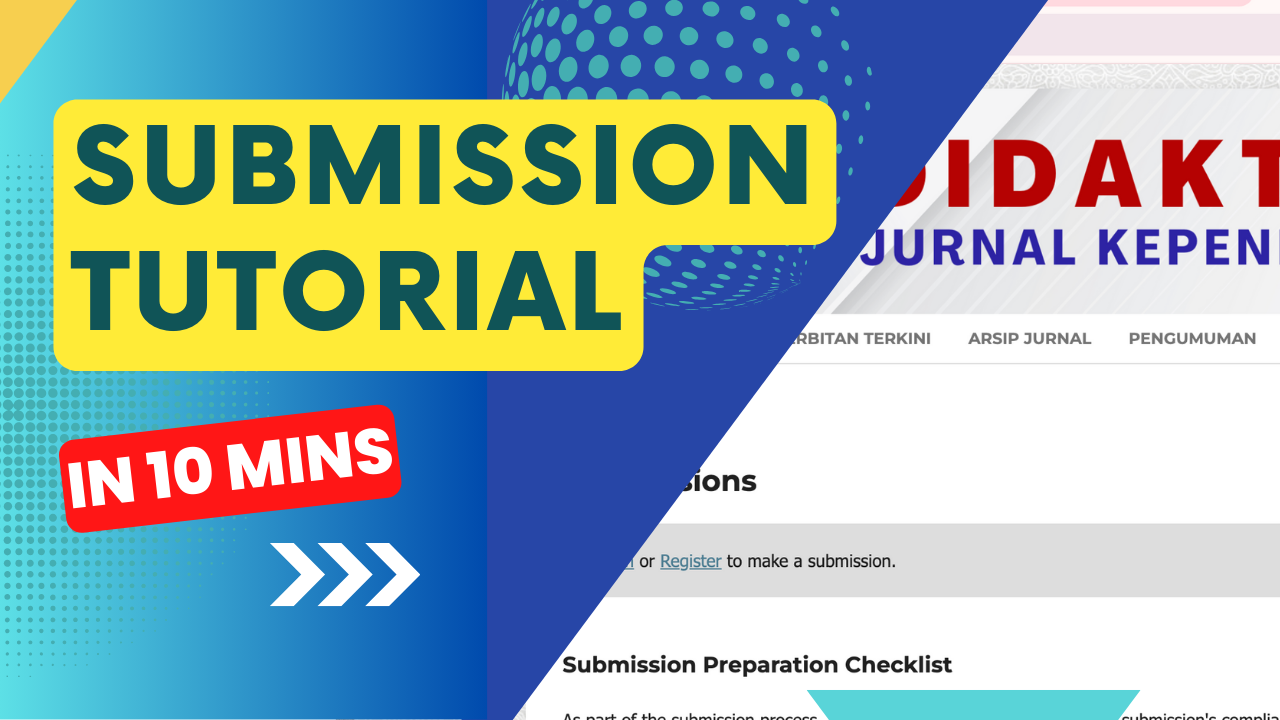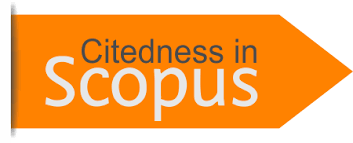The Effect of Project Based Learning (PJBL) Learning Model Assisted with Animated Video on Students' Creative Thinking Abilities and Science Processing Skills in Reaction Rate Materials
Abstract
The research aims to: (1) To determine the influence of the Project Based Learning (PjBL) learning model assisted by animated videos on the ability to think creatively on reaction rate material. (2) To find out whether there is a correlation between students' creative thinking abilities and science process skills taught using the Project Based Learning (PjBL) learning model assisted by animation videos on reaction rate material. The population in this study were all class XI students of SMAN 10 Medan. Sample selection was carried out using purposive sampling, namely XI IPA 3 and XI IPA 1. The instruments used were an essay test on creative thinking skills with 12 valid questions and an observation sheet on science process skills. The research results showed that there was a difference in the average value of creative thinking ability in the experimental class of 83.06, which was greater than in the control class of 73.11. From the right-sided t-test with a significance level = 0.05, the t count is 8.706 and the t table is 1.668. Then, in the correlation test between creative thinking abilities and scientific process skills, a correlation coefficient value of 0.661 was obtained in the high category.
Metrics
References
Asni, A., Wildan, W., & Hadisaputra, S. (2020). Pengaruh Model Pembelajaran Inkuiri Terbimbing Terhadap Hasil Belajar Kimia Siswa Materi Pokok Hidrokarbon. Chemistry Education Practice, 3(1), 17. https://doi.org/10.29303/cep.v3i1.1450
Emda Fakultas Tarbiyah dan Keguruan UIN Ar-Raniry Banda Aceh, A. (2017). LAboratorium Sebagai Sarana Pembelajaran Kimia Dalam Meningkatkan Pengetahuan Dan Ketrampilan Kerja Ilmiah. In Lantanida Journal (Vol. 5, Issue 1).
Fadhilah, A., Yenti, E., Pd, S., & Si, M. (2019.). Analisis Keterampilan Proses Sains Melalui Metode Praktikum Pada Materi Laju Reaksi.
Hadi, S., Rahim, A., Kunci, K., Animasi, M., & Memecahkan Masalah, K. (2021). A R T I C L E I N F O. Jurnal Pendidikan Kimia Indonesia, 5(2), 60–67. https://ejournal.undiksha.ac.id/index.php/JPK/index
Juniar, A., & Fardilah, R. D. (2019). The difference of students’ learning outcomes and science process skill which taught by guided inquiry and direct instruction with practicum integrated. Jurnal Pendidikan Kimia, 11, 8–13. https://doi.org/10.24114/jpkim.v11i1.13035
Juniar, A., & Silalahi, A. (2020). Developing Guided Inquiry-Based Module on Topic Argentometry to Improve Science Process Skills Preservice Chemistry Teachers.
Juwita Sman, R. (2022). Best Practice Membangun Keterampilan Proses Sains Melalui Model Project Based Learning Pendekatan Steam Materi Asam Basa Kelas Xi Ipa Sman 1 Bontang.
Kartini, P., Bahar, A., dan Elvinawati, E. (2021). Studi Perbandingan Model Pembelajaran Learning Cycle 5E dan Guided Discovery Learning Menggunakan Video Pembelajaran Terhadap Hasil Belajar Kimia Siswa. Alotrop, 5(1), 11-18.
Lestari, L., Nasir, M., & Jayanti, M. I. (2021). Pengaruh Model Project Based Learning Terhadap Kemampuan Berpikir Kreatif Peserta Didik Kelas VIII SMP Negeri 2 Sanggar. JISIP (Jurnal Ilmu Sosial Dan Pendidikan), 5(4), 1183–1187. https://doi.org/10.58258/jisip.v5i4.2440
Manu, T. S. N., & Nomleni, F. T. (2018). Pengaruh Metode Pembelajaran Karya Kelompok Terhadap Keterampilan Proses Sains Dengan Kovariabel Kemampuan Berpikir Kreatif Siswa Pada Mata Pelajaran Biologi. Scholaria: Jurnal Pendidikan Dan Kebudayaan, 8(2), 167–179. https://doi.org/10.24246/j.js.2018.v8.i2.p167-179
Muhammad Rafik, Vini Putri Febrianti, Afifah Nurhasanah, & Siti Nurdianti Muhajir. (2022). Telaah Literatur: Pengaruh Model Pembelajaran Project Based Learning (PjBL) terhadap Kreativitas Siswa Guna Mendukung Pembelajaran Abad 21. Jurnal Pembelajaran Inovatif, 5(1), 80–85. https://doi.org/10.21009/jpi.051.10
Nirmayani, L.H., dan Dewi, N,P,C,P,. (2021). Model Pembelajaran Berbasis Proyek (Proyek Based Learning) Sesuai Pembelajaram Abad 21 Bermuatan Tri Kaya Parisudha. Jurnal Pedagogi dan Pembelajaran. 4(3). 378-385.
Nuryadi, Astuti, T. D., Utami, E. S., & Budiantara, M. (2017). Buku Ajar Dasar-dasar Statistik Penelitian. In Sibuku Media.
Sinta, T., Muliaman, A., Mellyzar, D., Cot, J., Nie, T., Batu, M., & Utara, A. (2020). Peningkatan Hasil Belajar Menggunakan Model Project Based Learning Pada Materi Laju Reaksi. Chemistry in Education, 9(2), 1–5. http://journal.unnes.ac.id/sju/index.php/chemined
Widyasari, F., Indriyanti, N.Y., dan Mulyani,S. (2018). The Effect of Chemistry Learning with PjBL and PBL Model Based on Tetrahedral Chemistry Representation In term of Student's Creativity. JKPK (Jurnal Kimia dan Pendidikan Kimia), 3(2)
Copyright (c) 2024 Anna Juniar, Nurul Fajirah

This work is licensed under a Creative Commons Attribution 4.0 International License.
Dengan mengirimkan naskah artikel, berarti penulis setuju dengan segala kebijakan yang ditetapkan oleh jurnal dan penerbit.
Penulis menyatakan bahwa:
- kebijakan ini telah diketahui dan disetujui bersama oleh semua penulis;
- naskah artikel belum dipublikasikan secara resmi sebelumnya di media ber-ISSN atau ber-ISBN yang terdaftar, kecuali dalam bentuk abstrak atau sebagai bagian dari materi kuliah, atau skripsi/tesis/disertasi yang tidak diterbitkan;
- naskah tidak sedang dalam proses editorial dan dipertimbangkan untuk publikasi di tempat lain;
- publikasi naskah ini telah disetujui oleh semua penulis, institusi afiliasi penulis, otoritas yang bertanggung jawab, dan lembaga di mana kegiatan telah dilakukan;
- naskah berisi materi yang aman dari pelanggaran hak cipta;
Perjanjian Hak Cipta dan Lisensi
- Penulis memiliki hak cipta dan hak kepemilikan lainnya yang terkait dengan artikel.
- Penulis memiliki hak dan diizinkan untuk menggunakan substansi artikel untuk karya-karya penulis berikutnya, termasuk untuk keperluan bahan/materi kuliah dan buku.
- Penulis menyerahkan hak publikasi pertama kepada jurnal dengan di bawah Lisensi Creative Commons (CC BY 4.0).
Pernyataan Lisensi CC BY 4.0
Anda diperbolehkan:
- Berbagi — menyalin dan menyebarluaskan kembali materi ini dalam bentuk atau format apapun;
- Adaptasi — menggubah, mengubah, dan membuat turunan dari materi ini untuk kepentingan apapun, termasuk kepentingan komersial.
Pemberi lisensi tidak dapat mencabut ketentuan di atas sepanjang Anda mematuhi ketentuan lisensi berikut ini.
- Atribusi — Anda harus mencantumkan nama yang sesuai, mencantumkan tautan terhadap lisensi, dan menyatakan bahwa telah ada perubahan yang dilakukan. Anda dapat melakukan hal ini dengan cara yang sesuai, namun tidak mengisyaratkan bahwa pemberi lisensi mendukung Anda atau penggunaan Anda.
- Tidak ada pembatasan tambahan — Anda tidak dapat menggunakan ketentuan hukum atau sarana kontrol teknologi yang secara hukum membatasi orang lain untuk melakukan hal-hal yang diizinkan lisensi ini.





.png)








